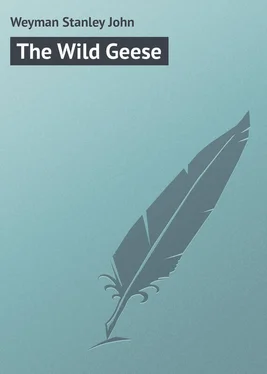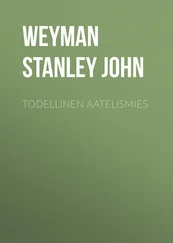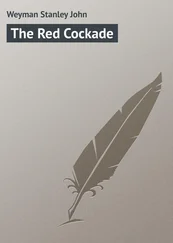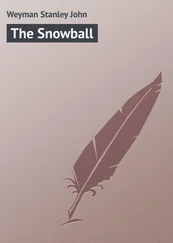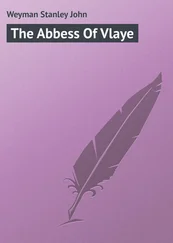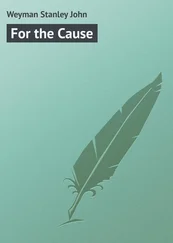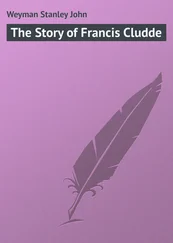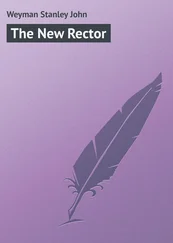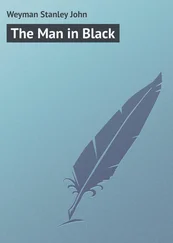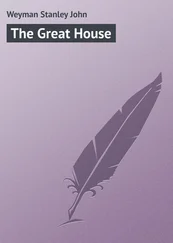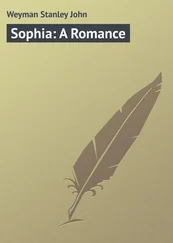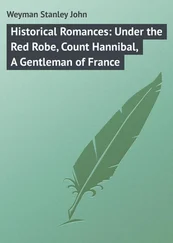Stanley Weyman - The Wild Geese
Здесь есть возможность читать онлайн «Stanley Weyman - The Wild Geese» — ознакомительный отрывок электронной книги совершенно бесплатно, а после прочтения отрывка купить полную версию. В некоторых случаях можно слушать аудио, скачать через торрент в формате fb2 и присутствует краткое содержание. Жанр: foreign_prose, на английском языке. Описание произведения, (предисловие) а так же отзывы посетителей доступны на портале библиотеки ЛибКат.
- Название:The Wild Geese
- Автор:
- Жанр:
- Год:неизвестен
- ISBN:нет данных
- Рейтинг книги:4 / 5. Голосов: 1
-
Избранное:Добавить в избранное
- Отзывы:
-
Ваша оценка:
- 80
- 1
- 2
- 3
- 4
- 5
The Wild Geese: краткое содержание, описание и аннотация
Предлагаем к чтению аннотацию, описание, краткое содержание или предисловие (зависит от того, что написал сам автор книги «The Wild Geese»). Если вы не нашли необходимую информацию о книге — напишите в комментариях, мы постараемся отыскать её.
The Wild Geese — читать онлайн ознакомительный отрывок
Ниже представлен текст книги, разбитый по страницам. Система сохранения места последней прочитанной страницы, позволяет с удобством читать онлайн бесплатно книгу «The Wild Geese», без необходимости каждый раз заново искать на чём Вы остановились. Поставьте закладку, и сможете в любой момент перейти на страницу, на которой закончили чтение.
Интервал:
Закладка:
At that word Payton found his voice. "Hang your apology!" he cried furiously.
"By an apology," the Colonel repeated, fixing him with eyes of unmeasured contempt, "which would have lowered him no more than an apology to a woman or a child. Not doing so, his act dishonours himself only, and those who sit with him. And one day, unless I mistake not, his own blood, and the blood of others, will rest upon his head."
With that word the speaker turned slowly, walked with an even pace to the door, and opened it, none gainsaying him. On the threshold he paused and looked back. Something, possibly some chord of superstition in his breast which his adversary's last words had touched, held Payton silent: and silent the Colonel's raised finger found him.
"I believe," Colonel John said, gazing solemnly at him, "that we shall meet again." And he went out.
Payton turned to the table, and, with an unsteady hand, filled a glass. He read disapprobation in the eyes about him, but he had shaken the momentary chill from his own spirits, and he stared them down. "Sink the old Square-Toes!" he cried. "He got what he deserved! Who'll throw a main with me?"
"Thirty guineas against your new mare, if you like?"
"No, confound you," Payton retorted angrily. "Didn't I say she wasn't for sale?"
CHAPTER VI
THE MAÎTRE D'ARMES
Beyond doubt Colonel John had got himself off the scene with a certain amount of dignity. But with all that he had done and suffered in the lands beyond the Baltic and the Vistula, he had not yet become so perfect a philosopher as to be indifferent to the opinion held of him by others. He was, indeed, as he retired, as unhappy as a more ordinary man might have been in the same case. He knew that he was no craven, that he had given his proofs a score of times. But old deeds and a foreign reputation availed nothing here. And it was with a deep sense of vexation and shame that he rode out of the barrack-yard. Why, oh why! had he been so unlucky as to enter it? He was a man, after all, and the laughter of the mess-room, the taunts of the bully, burned his ears.
Nor were his spirits low on his account only. The cruelty of man to man, the abuse of strength by those who had it, and the pains of those who had it not, the crookedness of the world in which the weak go to the wall – thoughts of these things weighed him down. But more, and more to the purpose, he saw that after what had happened, his chances of success in the enterprise which had brought him to town, and which was itself but a means to an end, were lessened. It might not be possible to pursue that enterprise any farther. This was a mortifying thought, and accounted for the melancholy face with which he sought the inn, and supped; now wishing that he had not done this or that, now pondering how he might turn the flank of a misfortune which threatened to shatter all his plans.
For if he was anxious to recover the mare, his anxiety did not rest there. Her recovery was but a step to other things; to that influence at Morristown which would make him potent for good; to that consideration which would enable him to expel foolish councils, and silence that simmering talk of treason which might at any moment boil up into action and ruin a countryside. But he knew that he could only get the mare from those who held her by imposing himself upon them; and to do this after what had happened seemed impossible. The story would be told, must be told: it would be carried far and wide. Such things were never hid; and he had come off so ill, as the world viewed things, he had cut so poor a figure, that after this he could hope for nothing from his personal influence here or at Morristown. Nothing, unless he could see himself right at Tralee.
He brooded long over the matter, and at length – but not until after his meal – he hit on a plan, promising, though distasteful. He called Bale, and made inquiries through that taciturn man; and next morning he sat late at his breakfast. He had learned that the garrison used the inn much, many of the officers calling there for their "morning"; and the information proved correct. About ten he heard heavy steps in the stone-paved passage, spurs rang out an arrogant challenge, voices called for Patsy and Molly, and demanded this or that. By-and-by two officers, almost lads, sauntered into the room in which he sat, and, finding him there, moved with a wink and a grin to the window. They leant out, and he heard them laugh; he knew that they were discussing him before they turned to the daily fare – the neat ankles of a passing "colleen," the glancing eyes of the French milliner over the way, or the dog-fight at the corner. The two remained thus, half eclipsed as far as the Colonel was concerned, until presently the sallow-faced man sauntered idly into the room.
He did not see the Colonel at once, but the latter rose and bowed, and Marsh, a little added colour in his face, returned the salute – with an indifferent grace. It was clear that, though he had behaved better than his fellows on the previous day, he had no desire to push the acquaintance farther.
Colonel John, however, gave him no chance. Still standing, and with a grave, courteous face, "May I, as a stranger," he said, "trouble you with a question, sir?"
The two lady-killers at the window heard the words and nudged one another, with a stifled chuckle at their comrade's predicament. Captain Marsh, with one eye on them, assented stiffly.
"Is there any one," the Colonel asked, "in Tralee – I fear the chance is small – who gives fencing lessons? – or who is qualified to do so?"
The Captain's look of surprise yielded to one of pitying comprehension. He smiled – he could not help it; while the young men drew in their heads to hear the better.
"Yes," he answered, "there is."
"In the regiment, I presume?"
"He is attached to it temporarily. If you will inquire at the Armoury for Lemoine, the Maître d'Armes, he will oblige you, I have no doubt. But – "
"If you please?" the Colonel said politely, seeing that Marsh hesitated.
"If you are not a skilled swordsman, I fear that it is not one lesson, or two, or a dozen, will enable you to meet Captain Payton, if you have such a thing in your mind, sir. He is but little weaker than Lemoine, and Lemoine is a fair match with a small-sword for any man out of London. Brady in Dublin, possibly, and perhaps half a dozen in England are his betters, but – " he stopped abruptly, his ear catching a snigger at the window. "I need not trouble you with that," he concluded lamely.
"Still," the Colonel answered simply, "a long reach goes for much, I have heard, and I am tall."
Captain Marsh looked at him in pity, and he might have put his compassion into words, but for the young bloods at the window, who, he knew, would repeat the conversation. He contented himself, therefore, with saying rather curtly, "I believe it goes some way." And he turned stiffly to go out.
But the Colonel had a last question to put to him. "At what hour," he asked, "should I be most likely to find this – Lemoine, at leisure?"
"Lemoine?"
"If you please."
Marsh opened his mouth to answer, but found himself anticipated by one of the youngsters. "Three in the afternoon is the best time," the lad said bluntly, speaking over his shoulder. He popped out his head again, that his face, swollen by his perception of the jest, might not betray it.
But the Colonel seemed to see nothing. "I thank you," he said, bowing courteously.
And re-seating himself, as Marsh went out, he finished his breakfast. The two at the window, after exploding once or twice in an attempt to stifle their laughter, drew in their heads, and, still red in the face, marched solemnly past the Colonel, and out of the room. His seat, now the window was clear, commanded a view of the street, and presently he saw the two young bloods go by in the company of four or five of their like. They were gesticulating, nor was there much doubt, from the laughter with which their tale was received, that they were retailing a joke of signal humour.
Читать дальшеИнтервал:
Закладка:
Похожие книги на «The Wild Geese»
Представляем Вашему вниманию похожие книги на «The Wild Geese» списком для выбора. Мы отобрали схожую по названию и смыслу литературу в надежде предоставить читателям больше вариантов отыскать новые, интересные, ещё непрочитанные произведения.
Обсуждение, отзывы о книге «The Wild Geese» и просто собственные мнения читателей. Оставьте ваши комментарии, напишите, что Вы думаете о произведении, его смысле или главных героях. Укажите что конкретно понравилось, а что нет, и почему Вы так считаете.
